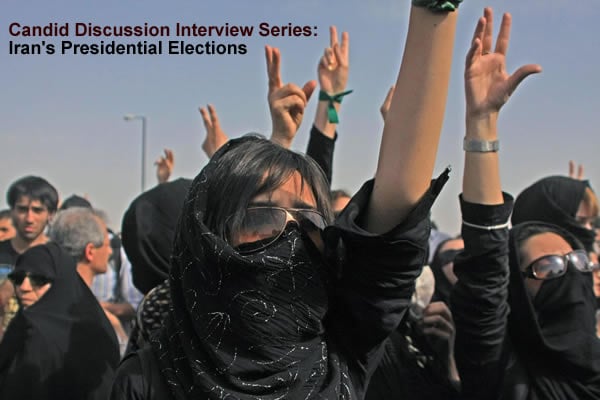
Mehrzad Boroujerdi on Iran’s Fractured Politics
Mehrzad Boroujerdi is the President of the International Society for Iranian Studies and Director of the Middle Eastern Studies Program at Syracuse University. A political scientist by training, Dr. Boroujerdi is the author of Iranian Intellectuals and the West: The Tormented Triumph of Nativism. He is also editor, most recently, of Mirror for the Muslim Prince: Islam and Theory of Statecraft.
Dr. Boroujerdi sat down with Reza Akhlaghi of Foreign Policy Association to discuss Iran’s June 14 presidential elections.
________________________________________________________________
How would you outline the key mechanisms of crisis of state ideology in the upcoming Iranian administration?
There are two rather serious problems in the ideological makeup of the Iranian theocracy that, in all likelihood, will carry over to the next administration as well. First is a crisis of legitimacy that has emerged due to the antediluvian ideas and values of a ruling elite that fails to resonate with an increasingly young, educated and urban citizenry. The second problem is one of a state that sees itself at odds with the outside world and is becoming more recalcitrant. Paranoia, unrealistic ambitions, lack of critical introspection, and adherence to a garrison state mentality does not bode well for the crisis of state legitimacy ending any time soon.
If the disqualification of Hashemi Rafsanjani and Rahim Mashaei is the result of an inter-factional accord, do you see a potential for the emergence of an inter-factional accord on Iran’s relations with the West aimed at dragging the country out of international isolation?
The disqualifications of Rafsanjani and Mashaei are definitely a result of inter-factional accord and they also indicate that the Supreme Leader is closing the door on any individual who is not completely submissive to him. Surely those who have been on the losing end of the disqualifications can criticize Iran’s foreign policy conduct, but frankly I don’t see that causing any serious alterations in Iran’s relations with the West.
With the process of militarization in Iran’s political and economic management, how much maneuvering room in the new administration will the high-ranking clergy have in the country’s corridors of power?
I think despite the increasing power of the military-security apparatuses in Iran it is important to remember that we are still dealing with a theocracy where heavy weight clerics wield a great deal of power in such institutions as the Abode of the Leader, Guardian Council, Assembly of Experts, Expediency Council, religious seminaries, quasi-private foundations and religious endowments, etc. So the clerics will still be walking freely in the corridors of power while the military — security Young Turks will be breathing on their necks.
Iran continues to have one of the world’s highest rates of brain drain. What’s your take on the impact of this consistent trend in brain drain on the country’s political process and its chances of building civil institutions?
Iran’s brain drain is a serious social, economic and political problem that will adversely affect the country for many years to come. The educated strata of Iranian society are leaving for greener pastures thanks to such factors as dismal employment prospects, lackluster social ambiance, declining academic standards, and political repression. Iran is being deprived of some of its best and brightest, and the loss of this human capital is rather distressing.
Do you think Iran’s ruling elite is looking to contain what could be called the distancing of the young generation from religious values? If there is such concern, how is it being tackled by the power elite?
I am sure the ruling elite in Iran are alarmed about the distancing of the young generation from religious values. However, the problem is that they can neither accept the right diagnosis nor design a remedy for properly addressing it. The “guardians of the faith” put the blame on “Western cultural invasion,” and on globalization and the Internet but not on their own track record of the last three decades. Acknowledging the deleterious impact of their own instrumentalist and mercantilist use of religion is too much for these gentlemen. So they prefer to clear their conscious cheaply while the youth become further and further alienated from both the state and its imposed religious orthodoxies.